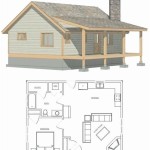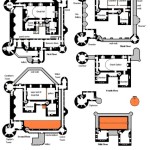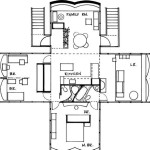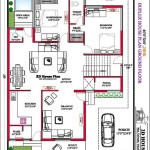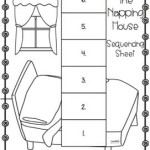Essential Aspects of a Basic House Floor Plan
Designing a functional and aesthetically pleasing house begins with creating a well-thought-out floor plan. A basic house floor plan outlines the layout of rooms, walls, windows, and doors, providing a blueprint for the construction and design of the house.
1. Functionality and Flow
The primary focus of a basic house floor plan is to ensure functionality and a smooth flow of movement through the house. This includes:
* Creating designated spaces for living, dining, sleeping, and other activities * Minimizing unnecessary hallways and maximizing usable space * Planning for easy access to common areas, such as the kitchen and bathrooms * Considering future needs and potential changes in lifestyle2. Room Layout and Allocation
Determining the number and size of rooms is crucial. Consider the specific needs of the household, such as the number of bedrooms, bathrooms, and living spaces. Allocate space for each room based on its intended use, ensuring adequate space for furniture and movement.
3. Wall Placement and Openness
The placement of walls defines the boundaries and shapes of rooms. Consider the following:
* Load-bearing walls: These walls support the weight of the house and cannot be removed or altered without structural reinforcement. * Non-load-bearing walls: These walls divide rooms and can be removed or moved to create more open spaces. * Windows and Doors: Plan for windows and doors to provide natural light, ventilation, and access to the outdoors.4. Kitchen and Bathrooms
The kitchen and bathrooms are essential spaces in any house. Plan for:
* Adequate counter and storage space in the kitchen * Proper ventilation and lighting * Access to plumbing and electrical outlets * Convenient placement of bathrooms in relation to bedrooms5. Outdoor Spaces
Incorporate outdoor spaces into the floor plan to extend living areas and connect with nature. Consider:
* Patios or decks for entertaining or relaxation * Balconies or porches for outdoor living * Gardens or landscaping for aesthetic appeal and privacy6. Scale and Proportions
Pay attention to the scale and proportions of the house. Rooms should be of appropriate size and shape, with adequate ceiling heights and window openings. Avoid disproportionate elements that can make the house feel cramped or overwhelming.
7. Architectural Style and Aesthetics
Consider the architectural style of the house and reflect its characteristics in the floor plan. For example, a traditional house may have a symmetrical layout with formal rooms, while a modern house may feature open spaces and floor-to-ceiling windows.
Conclusion
Creating a basic house floor plan is a fundamental step in the design process. By considering functionality, flow, room layout, wall placement, outdoor spaces, and architectural style, homeowners can create a home that meets their needs and reflects their preferences. A well-planned floor plan sets the foundation for a comfortable, functional, and aesthetically pleasing living space.

12 Examples Of Floor Plans With Dimensions

Stylish And Simple Inexpensive House Plans To Build Houseplans Blog Com

Floor Plans Learn How To Design And Plan

House Plans How To Design Your Home Plan

Est House Plans To Build Simple With Style Blog Eplans Com

Low Budget Simple House Design Plans For Builders Blog Builderhouseplans Com

Modern House Plan With 3 Bedrooms And 2 5 Baths 3450

Est House Plans To Build Simple With Style Blog Eplans Com

Compact Design 7134 4 Bedrooms And 2 Baths The House Designers Floor Plans Flooring

Simple House Plans Blog Homeplans Com

